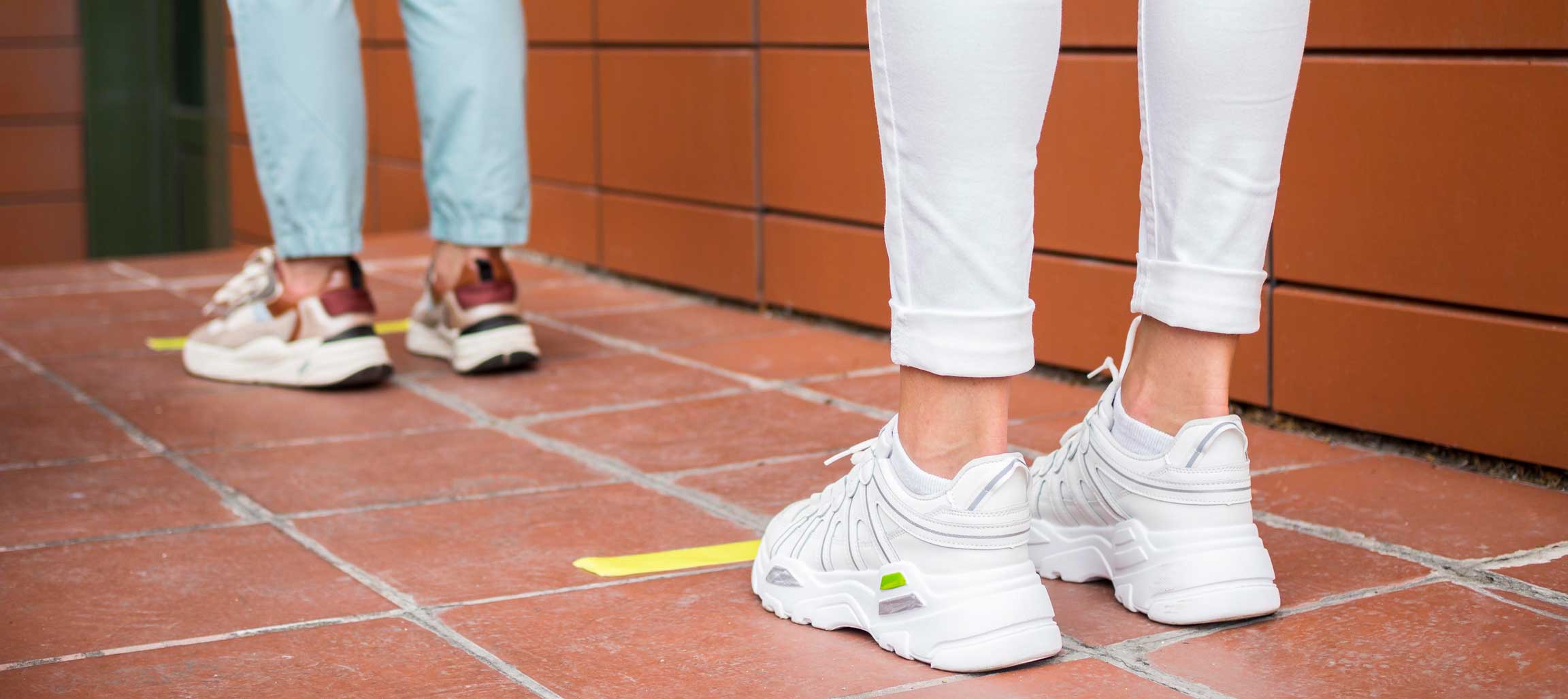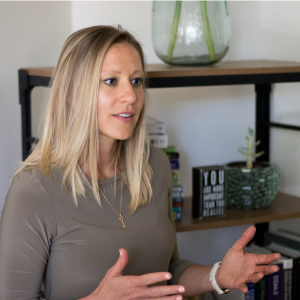Social Distancing not Emotional Distancing During the Coronavirus: Strategies to reduce your anxieties

 Hi, My name is Dr. Lauren Gorog and I’m a clinical psychologist. In my private practice, I help people with anxiety spectrum disorders develop tangible skills to monitor and control their stress levels. I recently partnered with the physicians in the Department of Emergency Medicine at McGovern Medical School at UTHealth – offering my expertise in coping with anxiety and stress to support their work as they navigate the impact of COVID-19 on their professional and personal lives. I would like to share some of these broadly-applicable strategies here.
Hi, My name is Dr. Lauren Gorog and I’m a clinical psychologist. In my private practice, I help people with anxiety spectrum disorders develop tangible skills to monitor and control their stress levels. I recently partnered with the physicians in the Department of Emergency Medicine at McGovern Medical School at UTHealth – offering my expertise in coping with anxiety and stress to support their work as they navigate the impact of COVID-19 on their professional and personal lives. I would like to share some of these broadly-applicable strategies here.
During this time of culture unrest resulting from the Coronavirus, I have seen as many varying reactions from people as there are brands of toilet paper. This is a pandemic and although I am speaking in jest about toilet paper, a recent NPR news story curiously covered the worldwide disappearance of this precious commodity. The conclusion as to why everyone decided toilet paper was top of their emergency preparedness list: because the supply was limited, it forced people to conclude it must be important, and therefore imperative to buy (and buy in bulk).
Making decisions about you and your families’ health have likely been challenged by social influences. Social influences tend to be compelling during times of information uncertainty and when having the right information might provide you with key information about preventing the Coronavirus.
Inevitably, we are all feeling the strain and whiplash of trying to keep up with the latest news about the pandemic.
Here are some suggestions I can provide to emotionally support you during this time when it’s difficult to know where to turn to find peace or comfort.
- Find a reliable medical source to assist you in making healthcare & lifestyle choices. Personally, I am following the CDC or the World Health Organization.
- Monitor the frequency and timing of your “checking” behaviors as it relates to not only your reliable medical source, but also social media’s coverage of Coronavirus. Research tends to show that the more you engage in checking or reassurance, the more uncertain you feel, thus increasing the checking behavior and overall anxiety.
- Focus on what you CAN do or who you CAN help, not on the tragedies that are out of your control. Let global tragedy motivate you to research ways you can become an active participant either during this pandemic or after it resides. Take the opportunity to learn more about your values, and then commit it to the action of helping.
- Focus on SMART goals. Smart goals are Specific, Measurable, Attainable, Realistic, and Timely. They are small and designed to be used to help you stay present while maintaining a sense of mastery when life feels all too overwhelming.
- HALT. This is a check-in skill that reminds you to pay attention to yourself and meet your own basic needs. Hungry, Angry/Afraid, Lonely, or Tired?
- Self-soothing skills help you get out of your head and into your sensations. Pick a favorite thing (sight, sound, touch, taste, smell) from each category and describe it to yourself without judging the quality of your experience. It’s harder than it sounds, but it’s a great way to ease your mind and lift your mood.
- Manage stress for your immune system: In addition to keeping ourselves healthy by washing our hands, drinking plenty of water, and engaging in other health-promoting measures, we can bolster our immune system by managing our stress. Our body’s immune system is inextricably linked to our nervous system, which means that when we experience prolonged stress, we are more susceptible to illness. Breathe, play, exercise, laugh, and engage in a creative outlet that will physically calm you down.
- Spend the extra time you have reflecting, not avoiding. Chances are you are afraid to slow down for one reason or another. You might find benefit taking the extra time you have to reflect while you read, write, or walk in nature.
- Social Distancing not Emotional Distancing During the Coronavirus. Find ways to connect with your family/friends in person or out of town. Cook together, converse, play games, and watch your favorite shows.
- Communicate while in close quarters. Use skills to help you identify and share your feelings instead of displacing your stress. Statements like, “I am feeling blank when you blank” because “I am needing blank” can help defuse a conflict that may arise while self-quarantined. Other skills such as deep breathing or drinking a glass of water before responding may help prevent responding in anger.
The point is, while we practice social distancing, we can learn a lot about ourselves and those we love around us. When we choose to find ways we can engage with ourselves, others, and the world around us in meaningful ways, we can live with purpose and build perspective and resilience.
One of my favorite quotes is from an Australian neurologist and psychiatrist that survived the Holocaust and went on to create a therapy (Logotherapy), aimed at helping remove the barriers that limit people from truly living a fulfilling life. Victor Frankl said, “Between stimulus & response there is a space. In that space is our power to choose our response. In our response lies our growth & our freedom.”
When trepidation is at its highest, my hope in offering some suggestions is that instead of feeling paralyzed and exhausted by the Coronavirus, you will use this as an opportunity to reflect, find comfort, and a sense of clarity helping you navigate the anxiety and stress that is inevitable.